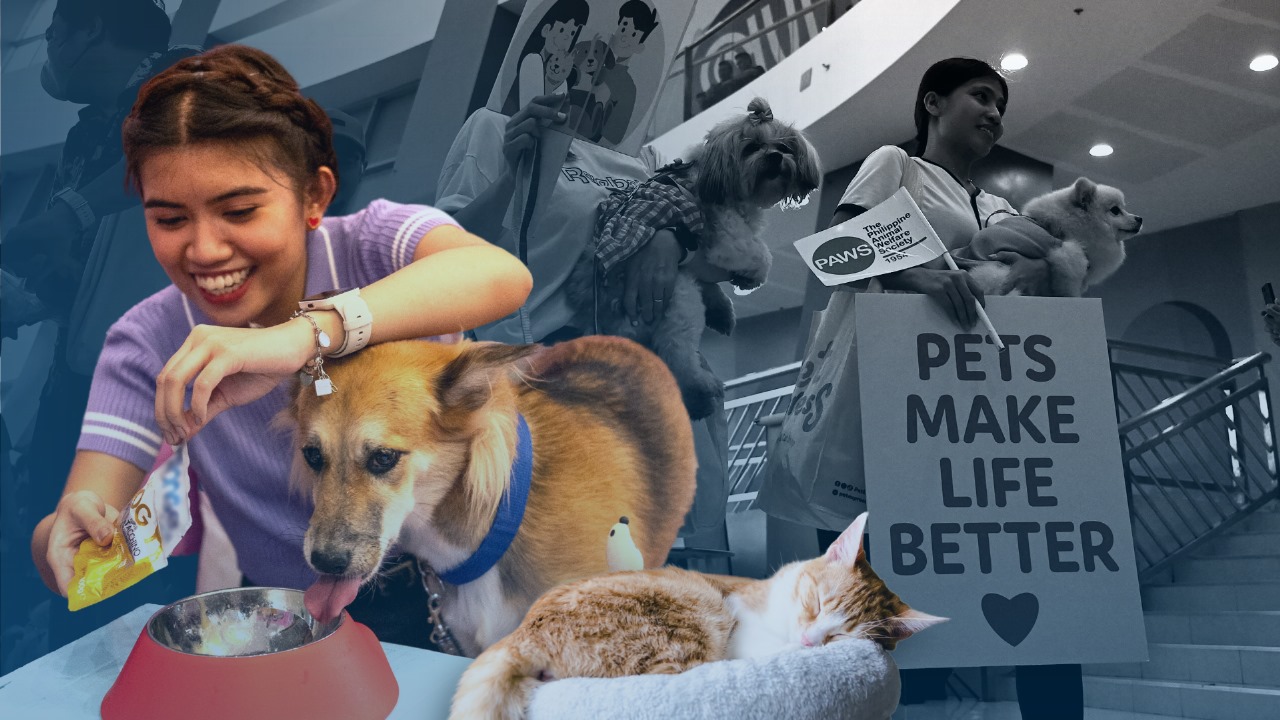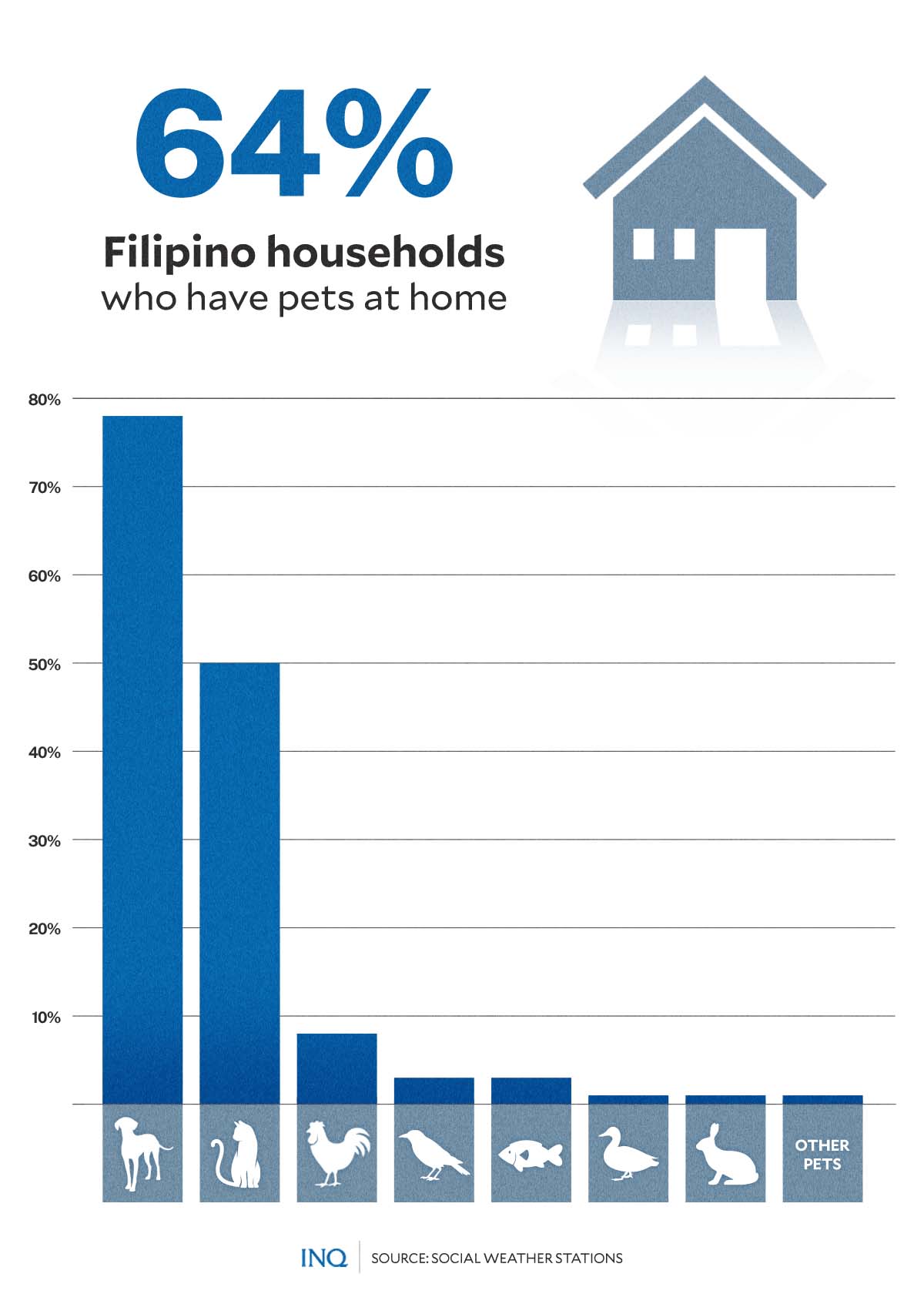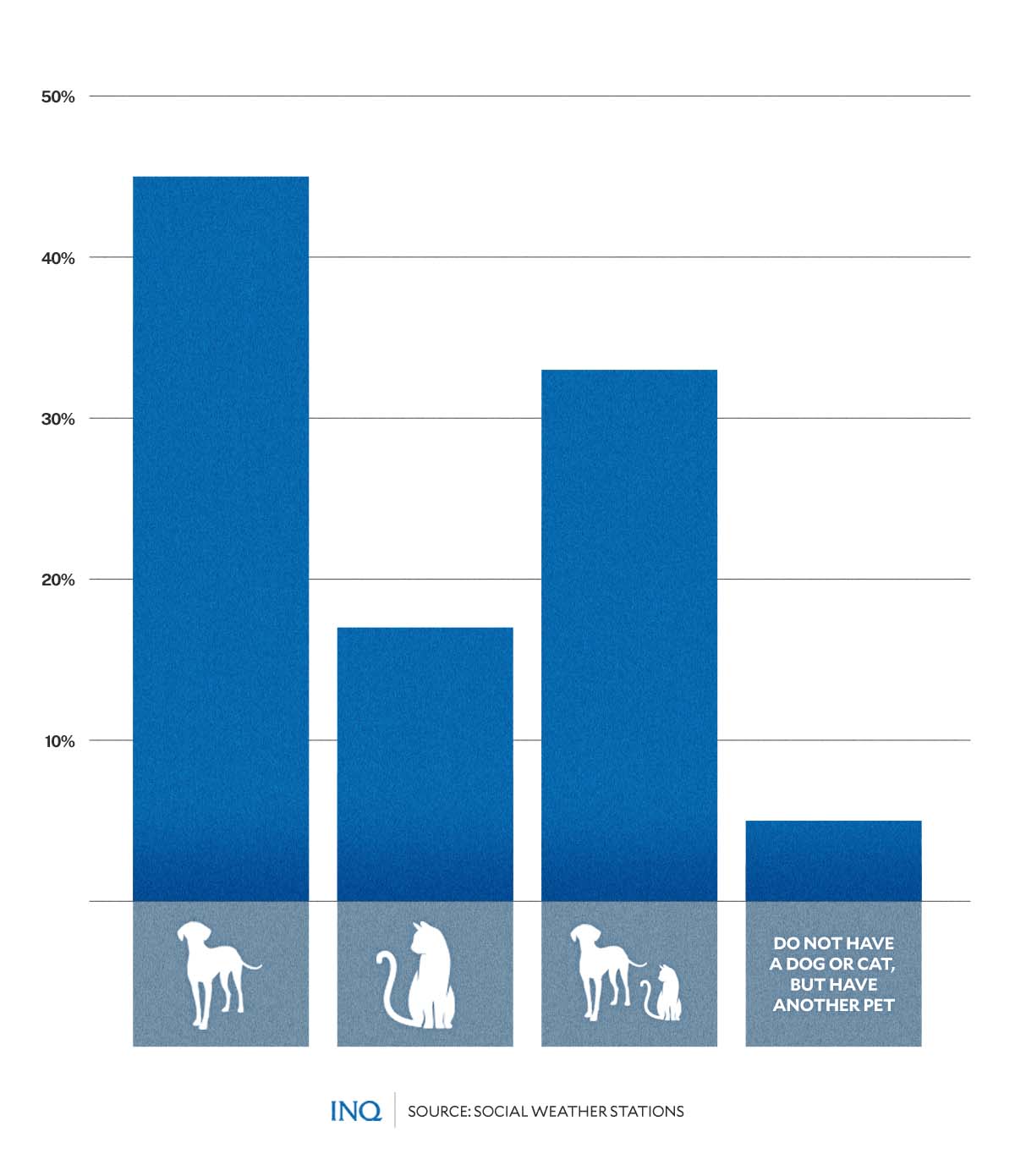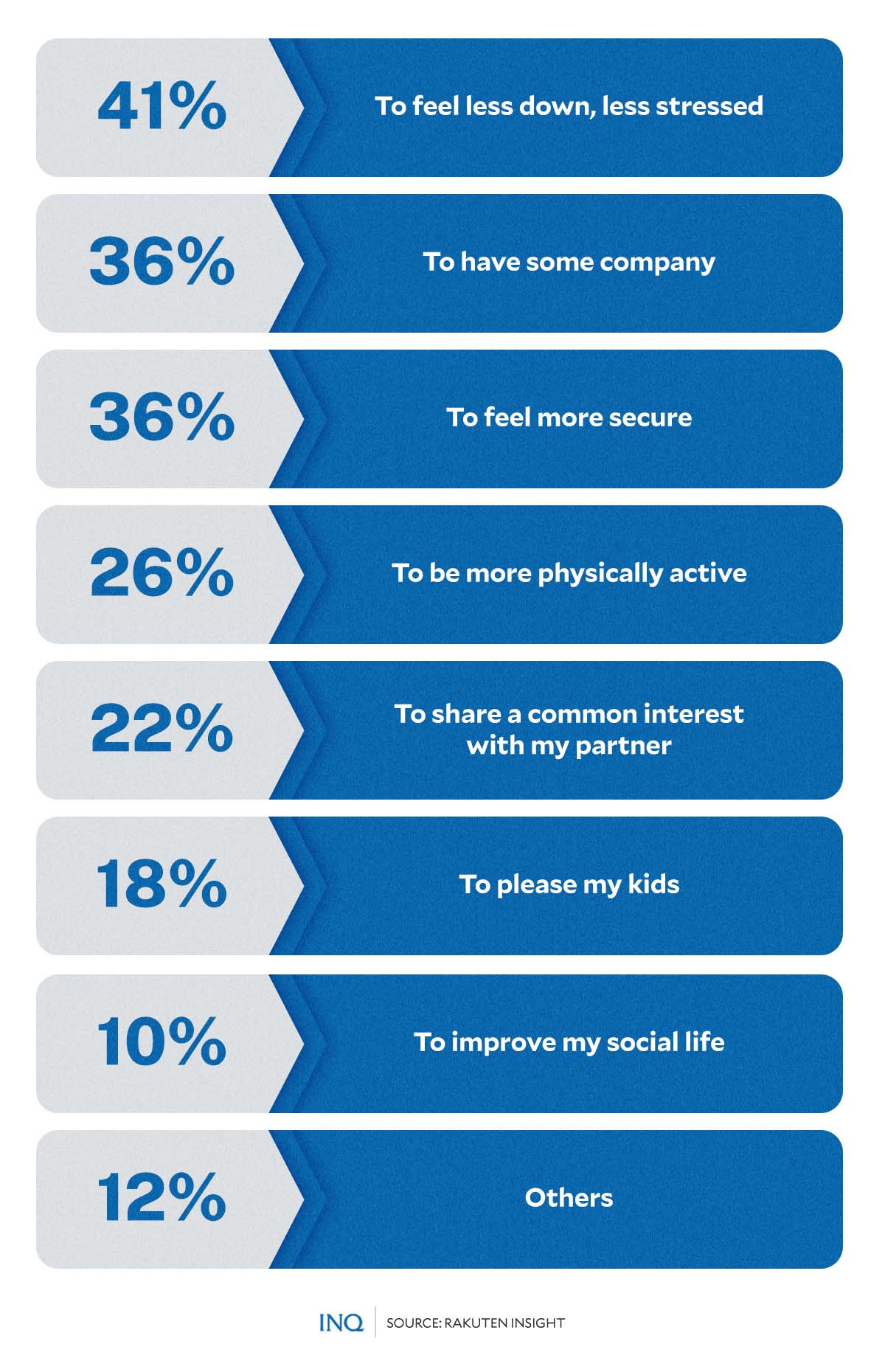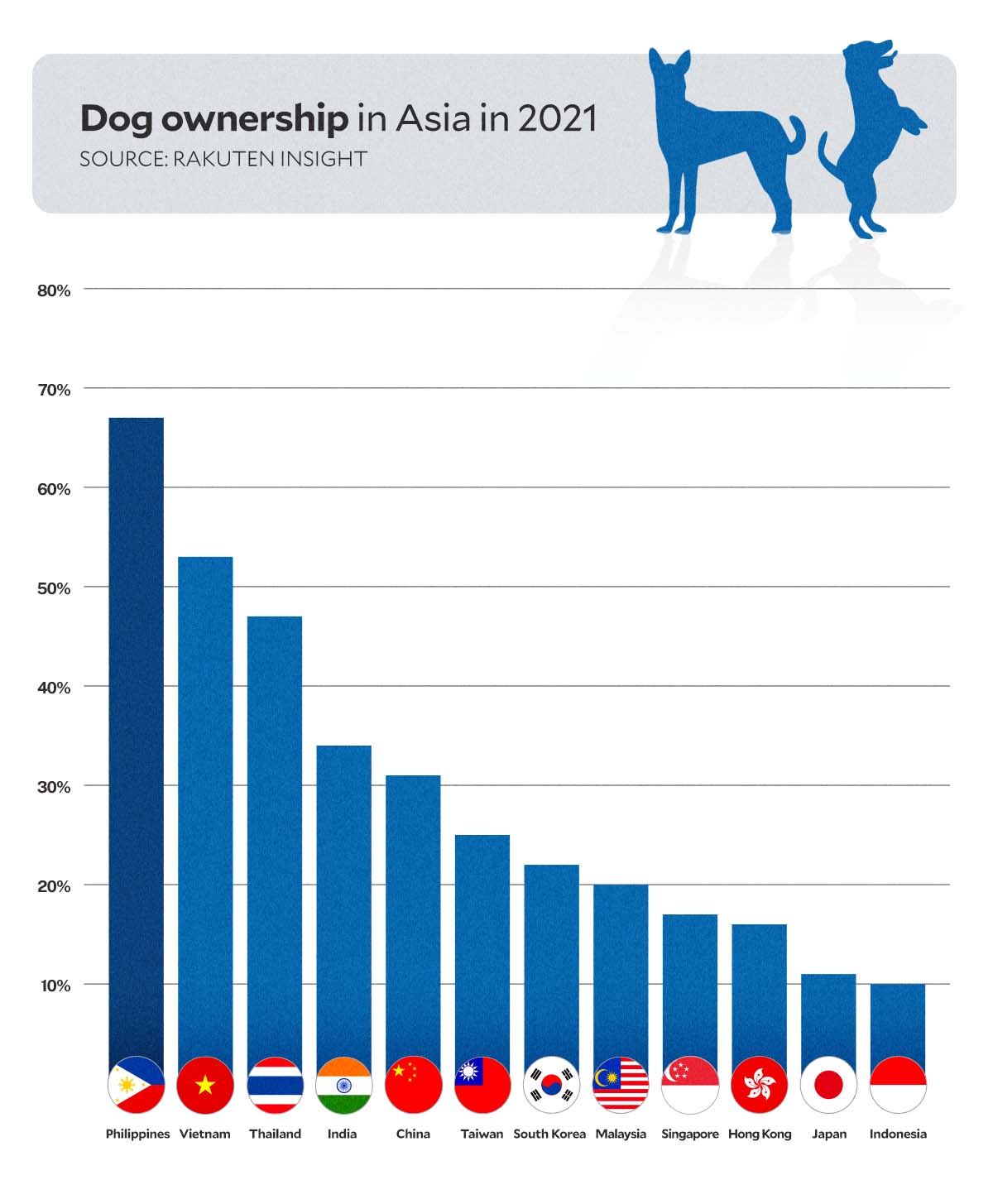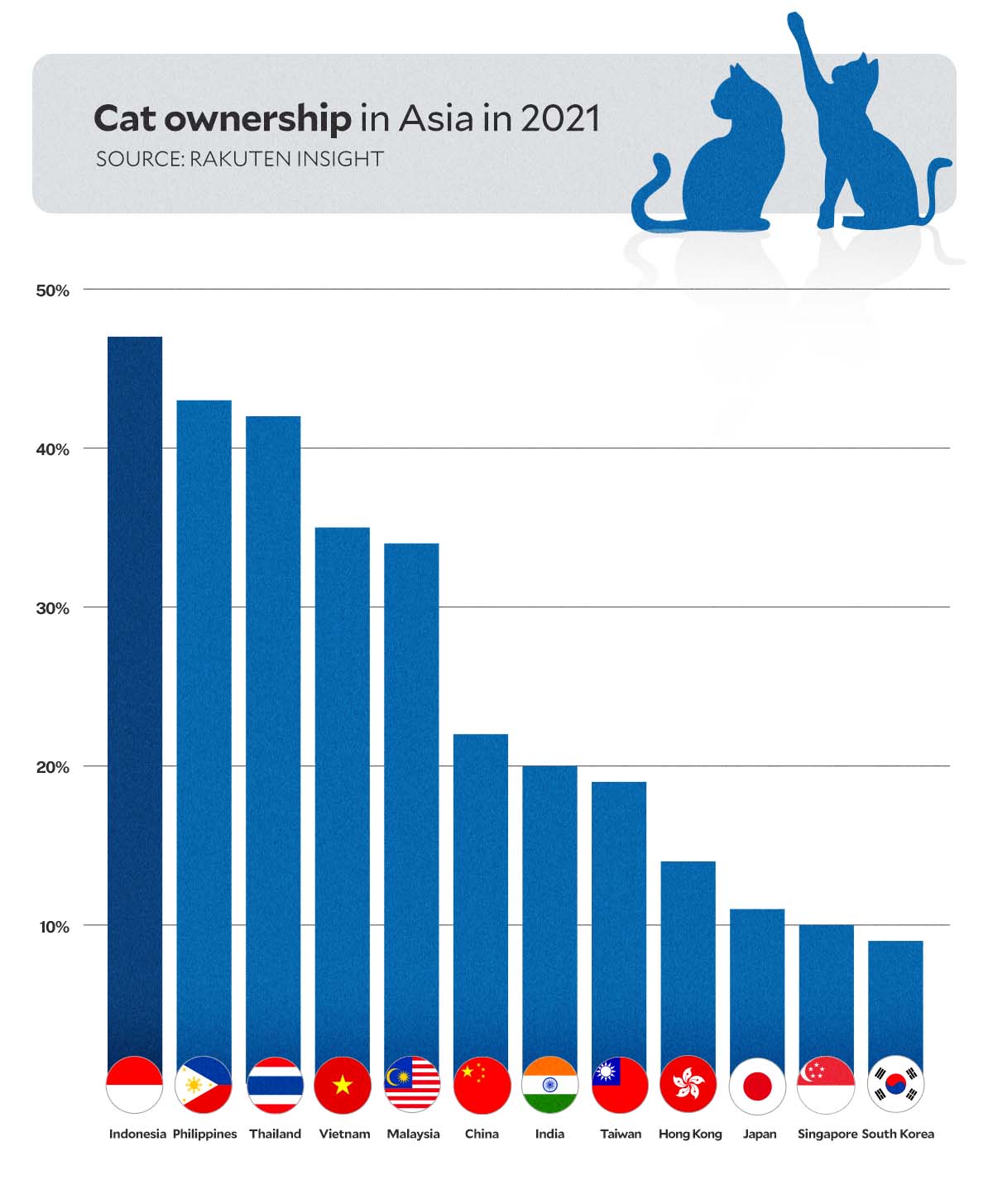The why behind the rise of pet parenting in PH
MANILA, Philippines—A “parent” to three dogs, Beatrice Pinlac said looking after them is not easy, but “[they give] the kind of love that doesn’t ask or demand too much,” so she’s still keeping them despite the challenges.
“I feel loved even on days I don’t have much to give,” she told INQUIRER.net.
Pinlac said “our family got pets during the pandemic, but we’ve had pets before.” She said “this time around, though, I think I took on the role of being a fur parent more seriously because I’m much older and I’m already earning my own money.”
Last week, Social Weather Stations said based on a survey that covered the first quarter of 2023, 64 percent of households in the Philippines have pets, with dogs (78 percent) and cats (50 percent) considered as the most popular.
READ: SWS: Pets in 64% of Filipino households, plants in 67%
Back in 2021, a year after the start of the COVID-19 crisis, research by the iPrice Group revealed that Filipinos have the highest interest in owning pets in Southeast Asia, saying that overall searches for pets by Filipinos on Google hit almost seven million in September that year.
The searches, it pointed out, accounted for 53 percent of the region’s.
Dr. Karen Sacdalan, a psychologist, told INQUIRER.net that the lockdowns in 2020 and 2021 put people on a new kind of life, which was quite unpleasant because almost everything changed.
Because of this, she said “we create many coping ways to go about the acceptance [of] and adjustment to [the] change[s].” As she stressed, some people turned to pets to cope with the crisis.
This year, she said the Psychological Association of the Philippines is working on the event “TheraFur (therapy + fur)” playdate to gather more insights on how pets help humans in so many different ways.
Companion
Sacdalan, chairperson of the PAP’s Special Interest Group for Persons with Disabilities, pointed out that pets have “therapeutic value,” which became more evident when the lockdowns were imposed.
“There is really human-animal interaction and it has impacts on our psyche, the total package of our human experience, especially because it gives pleasure. It invites a sense of satisfaction when we have an animal companion,” she said.
She said “there are health benefits,” saying that there is scientific research that revealed an outcome of feeling like being in a “biological spa treatment.” She said “it enhances cardiovascular health, like lowering blood pressure and [stabilizing] heart rate.”
Nikki Jane Isla, a “parent” to seven dogs, who was inspired by singer Sarah Geronimo’s love for pets, shared to INQUIRER.net that her pets “play a crucial role in keeping my anxiety at bay […] I treat them just like my children.”
This was shared, too, by Blanche Mapili, who said one of her dogs “came at a time when I needed an emotional buffer for being the primary caregiver of my dad [who was] then diagnosed with dementia, specifically Alzheimer’s.”
Since then, her pack has grown to 20 dogs and five cats. Sadly, however, she had to “rehome” some of them when the pandemic hit to make ends meet, stressing that “pet parenting is a responsibility. Keeping them sheltered, fed, vetted, protected, loved.”
It was explained by Sacdalan that taking care of an animal “helps produce endorphins (hormones that help relieve pain, reduce stress and improve one’s sense of well-being) and dopamine (hormone released in the brain that makes one feel good).”
“While producing these happy hormones, the stress hormones, mostly cortisol, get reduced.”
Deep connection
As Dr. Carmela Arreola, a mental health consultant, said in a video posted in 2022 by Ballet Philippines, there is the person-animal bond, which is a close, dynamic and mutually-beneficial relationship.
The bond, she explained, “means our pets do not only benefit from us, but we likewise benefit greatly from them in return.” She stressed that “from this relationship, the definition of true love is derived.”
Sacdalan said this love is already enough for “pet parents” to spend thousands of pesos on their pets.
Take as case the dog of Ayna Punzalan and her husband. Punzalan said “we are spending around P3,000 to P5,000 a month for Charlie […] we love pampering her, we treat her as our baby, that’s why we make sure that she gets everything she needs.”
“She’s family, so we don’t mind the expenses because she’s worth it,” she said.
Dindo Roxas and her girlfriend have the same sentiment, too, stressing that despite having to spend P1,200 to P1,500 a month on their cat, “especially as a student, our cat is our source of happiness and pushes us to persevere more in our studies to have him a good life.”
As stressed by Rich Tijam, a “parent” to a dog, “it is difficult to find love just like what a dog can give.”
“Before I felt a little alone, but when Klim Bap came, I felt like I had someone always,” she said, pointing out that pets are perfect companions. “They are very loyal. They get excited when you get home.”
Love for pets
Based on 2021 Rakuten Insight, Philippines has the highest rate of dog ownership in Asia at 67 percent. Some 43 percent of households have cats, too, the second highest rate, next to Indonesia’s 47 percent.
This, the United States Department of Agriculture-Foreign Agricultural Service said, is expected to drive the sales of pet food in the Philippines, with its latest estimates indicating that sales could grow by nine percent to $434 million this year.
READ: Pet-loving Philippines to consume more dog, cat treats
As explained by Sacdalan, the love for pets has the dynamic of giving, stressing that “[pets] provide companionship because they provide emotional support to the owners” as well as “giv[ing] us a sense of child-like behavior.”
“They help us to have a sense of play because play[ing] is an essential part of our being human […] Most people who did not have enough chances to play when they were younger are now catching up,” she said.
Sacdalan pointed out that in reality, “it is what we really need as an effect of the pandemic.”
Like what Punzalan said, “Charlie really gave us a new level of happiness,” explaining that their dog is really affectionate and easy to take care of. “We are always happy to attend to his needs and see him growing.”
Despite the expenses, too, Pinlac said “they’re still with us because no matter how costly it may be to have them around, the amount of happiness that their presence brings into our lives is worth so much more.”
She said while it is really hard to provide for most of their needs, she will always be willing to give them everything “because I come home to so much love and light from my three dogs.”
The good of ‘helping’
Looking back, Roxas’ cat was from a family friend “who asked us if we were willing to adopt him.” He said: “We agreed since there was no fee or payment attached. We also agreed to keep him since we wanted to try a different pet other than a dog.”
This happened to Punzalan, too, saying that last April, one of their friends was looking for a permanent home for her dog: “We immediately grabbed this opportunity since the timing was perfect. My husband had just started working at home.”
As explained by Sacdalan, there is a principle called “helping actually helps the helper.”
“While we may not solve problems right away […] the way we extend help to others, whether in a similar pain as we have, can also come back in the form of ‘feel good’ or ‘good vibes,’ Sacdalan stressed.
She made a reminder, though, that being “parents” to pets come with a great responsibility, pointing out that “while they help us in our needs, we should make sure that their safety and well-being are equally important, too.”
“Do no harm,” she said.
READ: How to be responsible pet owners
Isla said being a pet parent is incredibly fulfilling and at the same time challenging: “It brings a unique sense of purpose and joy to my life. Taking care of my dogs has taught me responsibility, empathy, and the importance of unconditional love.”
For Pinlac, while being a “pet parent” is fulfilling, it also means making sacrifices.
